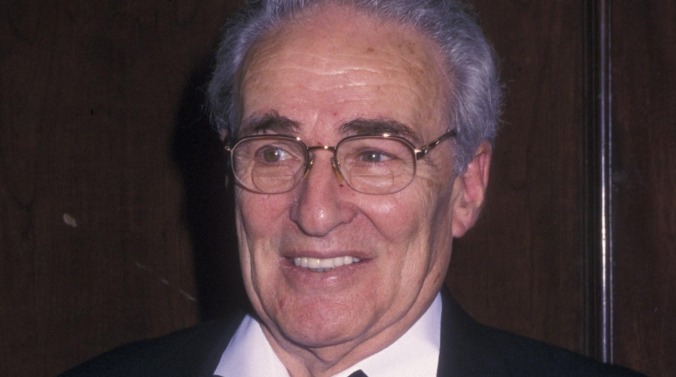Elliot Silverstein Photo: Ron Galella, Ltd./Ron Galella Collection
Elliott Silverstein, who directed films such as Cat Ballou and A Man Called Horse as well as multiple television episodes, died this past Friday. The news was announced by his family (via The Hollywood Reporter). He was 96.
Prior to directing his first feature film, Silverstein had a long career in television, helming episodes of series like Suspicion, The Twilight Zone, The Further Adventures of Ellery Queen, Route 66, Have Gun—Will Travel, Naked City, Dr. Kildare, and The Defenders. He also directed plays for Brandeis University in his native state of Massachusetts, including one conducted by Leonard Bernstein.
Silverstein made his feature-length directorial debut in 1965 with Cat Ballou, a comedy Western starring Jane Fonda and Lee Marvin, the latter of whom won an Oscar for playing both Kid Shelleen and Tim Strawn in the film. According to THR, it was Silverstein who came up with the idea to cast Marvin as Kid Shelleen in the film after Kirk Douglas turned it down, threatening to quit if Marvin was replaced. It was also Silverstein’s idea to cast Nat King Cole and Stubby Kaye in the film as a sort of Greek chorus framing device, which was not in the original script.
From there, Silverstein went on to direct a number of other features throughout his career, including The Happening (1967), A Man Called Horse (1970), The Car (1977), and Flashfire (1994).
Silverstein also impacted Hollywood away from the camera. For six months from November 1963 to April 1964, Silverstein chaired a Directors Guild of America committee that drafted what would become the Bill of Creative Rights, a landmark document regarding directors’ creative control. Within the Bill of Creative Rights is a declaration specifically concerning the Director’s Cut, which Silverstein is also credited with. “The arrangement of the recorded images and sounds in a relationship the Director considers proper shall be known as the ‘Director’s Cut,’” the declaration reads. “It is the Director’s creative right and obligation to prepare this cut, and he must be given the time he deems necessary to fulfill this function.” In 1990, Silverstein was named an honorary life member of the guild for his contributions.
Upon learning of Silverstein’s death, DGA president Lesli Linka Glatter issued the following statement:
Every director today owes a debt of gratitude to Elliot Silverstein. No one ever worked harder or was more passionate about protecting artists from having their work and vision altered than Elliot. He knew how deeply intertwined the end product was with a director’s authority to execute their vision, and that these rights were essential for their best work to shine through. Almost sixty years ago, Elliot successfully led the charge to secure the right to a director’s cut –something that had been a DGA goal for years. And through his work and determination he helped codify and negotiate a list of creative necessities with producers through the development of the Bill of Creative Rights – something which governs the rights of DGA members to this day.
Elliott’s commitment to the needs of directors knew no bounds. He once purposely made a spectacle in the middle of the Universal Studios lot, dragging a chair into the street as his ‘office’ to draw attention to the fact that producers refused to provide workspaces for directors. Thanks to him, that changed in the next round of negotiations. Elliot went on to serve in Guild leadership for four decades, and his tremendous impact earned him almost every service Award the Guild could bestow, including the Robert B. Aldrich Award in 1985, Honorary Life Membership in 1990, and the DGA Honors John Huston Award in 2002. His legacy endures in every director’s chair today. He will be deeply missed.
He is survived by his brother, Jason.

